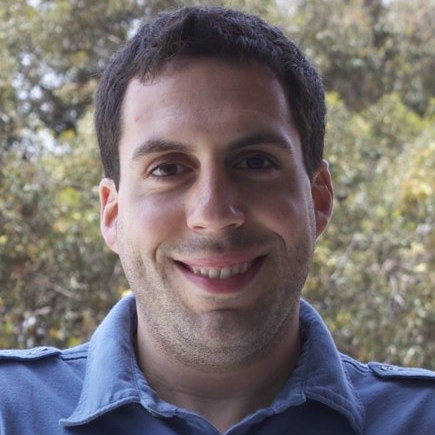
Fernando Martinez
Graduate Student
(Ph.D.)
Alumni
Biomedical Sciences
f8martin at ucsd.edu
Degrees
A.B., Physics, Princeton University, 2005
M.S., Biophysics, Stanford University, 2008
Ph.D, Biomedical Sciences, UC San Diego, 2016
Summary
Fernando is a graduate student in the Biomedical Sciences program at UCSD. He earned his undergraduate degree in Physics from Princeton University. Working in the laboratory of Dr. Robert Austin, he developed microfabrication techniques that allowed the study of C. elegans locomotion within patterned micro-environments. Following the completion of his A.B., Fernando earned his M.S. degree in Biophysics from Stanford University. Working in the laboratory Dr. Shaul Hestrin, he constructed a custom two-photon imaging rig that enabled simultaneous brain imaging and electrophysiology in vivo. In 2008 Fernando joined the biopharmaceutical company iPierian. At iPierian, he used human induced pluripotent stem cell (hiPSC) technology to develop “disease in a dish” models for Spinal Muscular Atrophy and Amyotrophic Lateral Sclerosis (ALS). As part of a multidisciplinary team, he executed several HTS campaigns using hiPSC based disease models, leading to the discovery of novel drug candidates. As a first year graduate student at UCSD, Fernando completed rotations in the laboratories of Dr. Joseph Gleeson and Dr. Larry Goldstein. Working under Dr. Gleeson, he identified a mutation in the gene NSUN2 as a cause of hereditary intellectual disability. Now, in the laboratory of Dr. Gene Yeo, Fernando plans to continue to focus on in vitro modeling and motor neuron diseases. He is currently utilizing in vitro differentiation of hiPSC’s to investigate the RNA processing defects induced by several recently discovered ALS causing mutations. Using modern genomics techniques, he is characterizing the molecular changes that occur in motor neurons during disease progression.
Publications
Genetic mutations in RNA‐binding proteins and their roles in ALS
Kapeli K, Martinez FJ, Yeo GW. Human Genetics , 2017
Protein-RNA networks regulated by normal and ALS-associated mutant HNRNPA2B1 in the nervous system. Neuron Martinez FJ, Pratt GA, Van Nostrand EL, Batra R, Huelga SC, Kapeli K, Freese P, Chun SJ, Ling K, Gelboin-Burkhart C, Fijany L, Wang H, Nussbacher JK, Broski, SM, Kim HJ, Lardelli R, Sundararaman B, Donohue JP, Javaherian A, Lykke-Andersen J, Finkbeiner S, Bennett F, Ares M, Burge CB, Taylor JP, Rigo F, Yeo GW. Neuron, 2016.
Target discrimination in nonsense-mediated mRNA decay requires Upf1 ATPase activity. Lee SR, Pratt GA, Martinez FJ, Yeo GW * , Lykke-Anderson J * . (*co-corresponding) Molecular Cell, 2015
Enhanced Caenorhabditis elegans locomotion in a structured microfluidic environment. Park S, Hwang H, Nam SW, Martinez F, Austin RH, Ryu WS. PLoS One. 2008 Jun 25;3(6):e2550. [PMID: 18575618]
Whole exome sequencing identifies a splicing mutation in NSUN2 as a cause of a Dubowitz-like syndrome. Martinez FJ * , Lee JH * , Lee JE, Blanco S, Nickerson E, Gabriel S, Frye M, Al-Gazali L, Gleeson JG. J Med Genet. 2012 Jun;49(6):380-5. Epub 2012 May 10. (* Authors contributed equally) [PMID: 22577224]